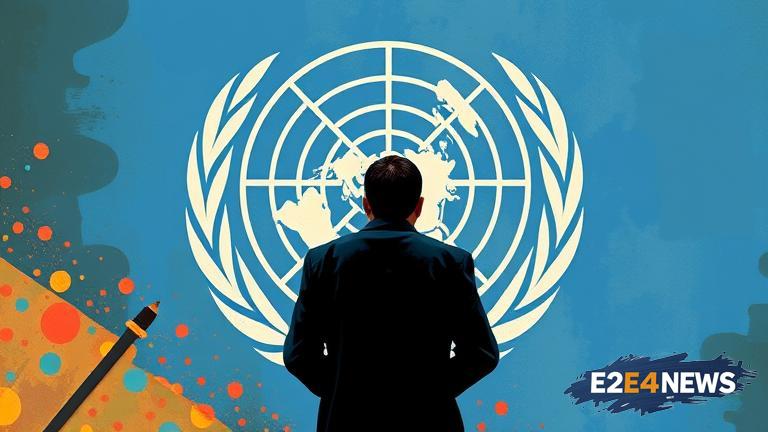The United Nations, established in 1945, is a global organization dedicated to promoting peace, security, and cooperation among its member states. However, in recent years, the UN has faced criticism for its perceived ineffectiveness in addressing various global crises, including conflicts, humanitarian disasters, and environmental issues. The organization’s lack of visibility and inability to take decisive action have led many to question its relevance and role in modern international relations. Despite its noble goals and ideals, the UN has struggled to adapt to the changing global landscape, marked by rising nationalism, shifting power dynamics, and increasing complexity. The organization’s bureaucratic structure and decision-making processes have been criticized for being slow and inefficient, hindering its ability to respond effectively to emerging crises. Furthermore, the UN’s reliance on member state contributions and voluntary funding has limited its financial resources and autonomy. The organization’s leadership has also faced criticism for lacking a clear vision and strategy, failing to provide effective guidance and direction. The UN’s inability to prevent or resolve conflicts, such as the Syrian civil war, the Israeli-Palestinian conflict, and the Yemeni crisis, has eroded its credibility and legitimacy. Additionally, the organization’s handling of humanitarian crises, including refugee crises and natural disasters, has been criticized for being inadequate and slow. The UN’s environmental initiatives, including the Paris Agreement, have been hindered by lack of implementation and enforcement. The organization’s human rights efforts have also been criticized for being ineffective, with many member states ignoring or violating human rights commitments. The UN’s development goals, including the Sustainable Development Goals, have been hindered by lack of funding and implementation. The organization’s peacekeeping operations have been criticized for being ineffective and sometimes counterproductive. The UN’s role in promoting disarmament and non-proliferation has been limited, with many member states ignoring or violating disarmament commitments. The organization’s efforts to promote international law and justice have been hindered by lack of cooperation and enforcement. The UN’s relationship with major powers, including the United States, China, and Russia, has been strained, with these countries often prioritizing their national interests over international cooperation. The organization’s ability to address emerging global challenges, including cybersecurity, artificial intelligence, and pandemics, has been limited by its lack of expertise and resources. Despite these challenges, the UN remains an essential institution for promoting international cooperation and addressing global crises. The organization’s reform efforts, including the Secretary-General’s reform agenda, aim to improve its efficiency, effectiveness, and accountability. However, these efforts face significant challenges, including resistance from member states and bureaucratic inertia. Ultimately, the UN’s future relevance and effectiveness will depend on its ability to adapt to the changing global landscape, address its internal challenges, and demonstrate its value and impact in promoting peace, security, and cooperation among its member states. The organization’s ability to respond to emerging crises, promote sustainable development, and protect human rights will be critical in determining its continued relevance and legitimacy. As the global community continues to evolve and face new challenges, the UN must prioritize reform, innovation, and cooperation to remain a vital and effective institution.
